Evaluating Country Programmes - OECD Online Bookshop
Evaluating Country Programmes - OECD Online Bookshop
Evaluating Country Programmes - OECD Online Bookshop
Create successful ePaper yourself
Turn your PDF publications into a flip-book with our unique Google optimized e-Paper software.
<strong>Evaluating</strong> <strong>Country</strong> <strong>Programmes</strong><br />
160<br />
When preparing country evaluations, institutions should report on progress achieved in the<br />
country on cross-cutting concerns of poverty reduction, gender equity, governance and the environment.<br />
If projects are directly earmarked for these concerns, assessment can be made of their efficacy.<br />
Poverty reduction<br />
The issue of poverty reduction is raised in the country strategies of many MDBs<br />
these days. The World Bank uses a wide range of instruments in the strategies to<br />
support efforts to reduce poverty – efficient and broad-based economic growth,<br />
access by the poor to health care and education, urban and rural development targeted<br />
on the poor, access of the poor to credit, the development of infrastructure<br />
in poor areas and policy dialogue. The World Bank recommends that each of its<br />
CASs i) include a coherent diagnosis of poverty based on recent analysis,<br />
ii) develop special indicators and benchmarks for evaluating poverty outcomes and<br />
an information strategy to monitor results at both the project and country levels,<br />
and iii) include a poverty strategy which involves a high degree of participation of<br />
the poor and marginalised in its preparation. These efforts to build a poverty reduction<br />
strategy into the CAS and include indicators and benchmarks should greatly<br />
facilitate the evaluation of the Bank’s efforts in this area.<br />
The World Bank’s CARs and CANs have provided little focus so far on the poverty<br />
reduction agenda of the Bank. The Bolivia CAR reported that the Bank’s three<br />
social fund projects in the country appear to have been regressive because they<br />
provided the poorest provinces with far less resources than the less poor ones. The<br />
Bangladesh CAR noted that while considerable progress has been made in improving<br />
the general well-being of the population through reduced infant mortality,<br />
increased life expectancy and increased caloric intake, large segments of the population<br />
still live in very poor conditions. The Ecuador CAN examined the CAS objective<br />
to alleviate poverty, noting that the condition of the poor deteriorated over the<br />
period in question, that targeted loans represented only a small portion of the total<br />
and that the borrower was unable or unwilling to invest in a meaningful social safety<br />
net. Greater efforts are being made to include poverty reduction in recent studies<br />
such as the Sri Lanka CAN.<br />
Efforts to build poverty reduction objectives with accompanying targets, indicators<br />
and benchmarks into country strategies would facilitate evaluation efforts in<br />
this area. In situations where the strategy does not address poverty reduction<br />
objectives, country assistance evaluations can still relate project success and other<br />
progress (or lack of progress) in this area.<br />
Gender equity<br />
The issue of gender equity – differences in economic and social indicators –<br />
income, wealth, education, nutrition and access to services and resources – is<br />
<strong>OECD</strong> 1999


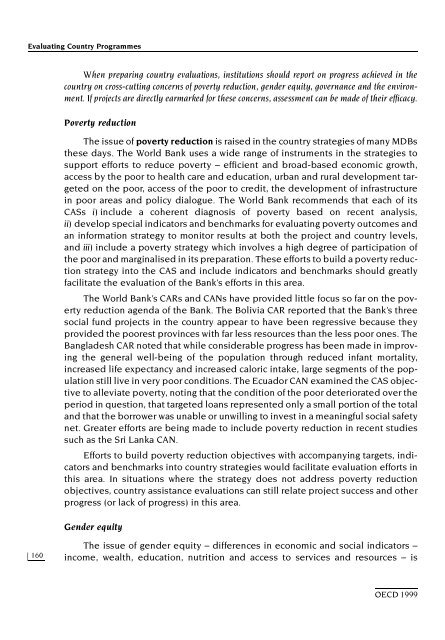


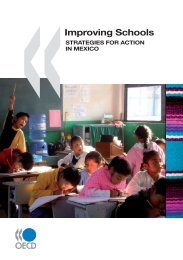
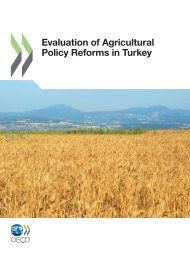
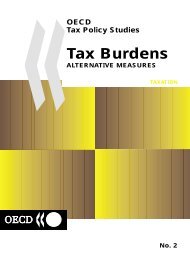
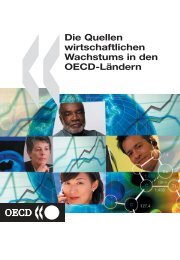
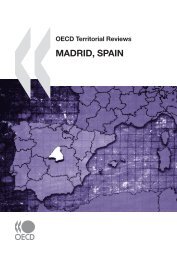



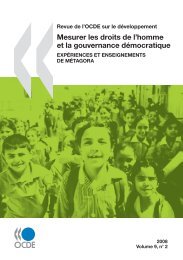
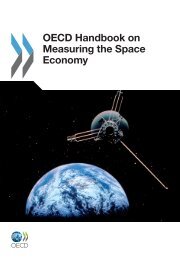
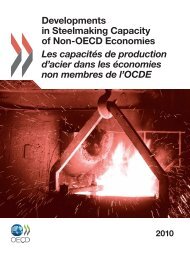
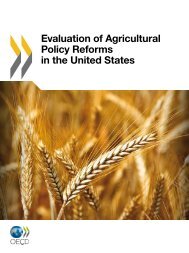
![CQE=U]^\]Z: KAZAKHSTAN - OECD Online Bookshop](https://img.yumpu.com/3915768/1/190x253/cqeuz-kazakhstan-oecd-online-bookshop.jpg?quality=85)